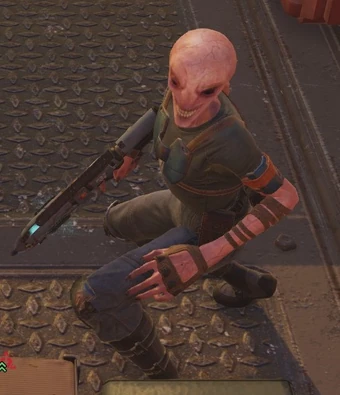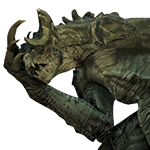Fair enough! Why go with unique characters this time, instead of customizable recruits? How did this decision impact the production process?
The decision to go with unique agents was in some ways an evolution on some of the choices we made in the
War of the Chosen expansion for
XCOM 2, where you had specific characters and personalities in the Chosen, Elena Dragunova and Pratal Mox.
With
XCOM: Chimera Squad, our story is set five years after the defeat of the Elders – which meant that many formerly mind-controlled aliens now find themselves in an unfamiliar world and must figure out what they’re going to do, how they’re going to live. We wanted to explore the concept of a new world being shared between humans, hybrids, and aliens, and that set the stage for introducing agents, who exemplify parts of the conflict.
Of course, the decision to shift to agents also meant big changes for tactical combat. In some ways, we now have 11 unique classes because no agents share skills with each other.
One of the most fun parts of developing
XCOM: Chimera Squad was that because you have aliens and hybrids on your team, you can now use those alien abilities like Verge’s Mind Control or Torque’s Tongue Pull for your own benefit. Finding the synergy between squad mates, ways to set each other up, reposition and combine powers is a key part of the strategy for
XCOM: Chimera Squad.
Can you share a concrete example that might help our game designer readers understand the way you had to change your thinking when moving from customizable XCOM squaddies to distinct agent characters? Was there a specific role you felt got diluted or lost, for example, or were there alien abilities from prior XCOM games that just didn't fit quite right in Chimera Squad?
The introduction of distinct Agents and the switch to interleaved rurns are interconnected. If we had interleaved turns but our units didn’t have unique abilities and playstyles, I think each turn would have ended up being much less interesting.
A big focus for us in designing the agents was making sure that each of them had something they could do each and every turn besides taking a standard shot action. Plus, that other ability had to be awesome because it is always competing against just shooting the enemy! Having unique agents also unlocks some fun gameplay in deciding how to build your squad with different character synergies and combos.
No combat roles were really lost in the switch over as we had 11
XCOM classes effectively with our new agents. Arguably, the Sniper class was lost as it didn’t make as much sense to include with our much more confined gameplay spaces, but the gameplay of high damage, precision shooting is still available through characters like Blueblood.
Overwatch and large AOE abilities were toned down in importance for Chimera Squad as they became much more oppressive with interleaved turns, because there is not always a teammate there to bail you out of the tough situations those abilities create.
How did the shift to smaller, more intimate encounters change your approach to combat design, and why make that shift away from the larger battlefields of XCOM and XCOM 2?
XCOM: Chimera Squad is entirely set in City 31 – an urban setting – meaning the tactical battlefields also needed to shift from expansive, open country areas to more contained ones, like warehouses, office spaces, etc.
The design of the battlefields also further amped up the intensity of the new combat modes. Breach mode in
XCOM: Chimera Squad is an evolution of the Ambush mechanics from previous games. Unit order, unit choice, and entry point give you new tactical choices, and executing a successful Breach can really set Chimera Squad up for success.
We found that breaking up Missions into smaller Encounters – each separated by a Breach – created a really interesting, intense experience that rewards smart decisions. How do you best set up the upcoming Encounter for your squad? If you know you have three Encounters to complete to beat the mission, do you use all your expendable resources like grenades and medkits early on, or do you save them for the second or third Encounter?
It’s been really fun to see what strategies everyone comes up with.
Finally, how has the reception been to Chimera Squad and the changes it introduces to the XCOM design mold? What do you expect to take away from this game and apply to future XCOM games?
We’ve been floored with the reaction to
XCOM: Chimera Squad! We knew that many of the changes being introduced in the game are very different from what franchise veterans are used to. It was important to us that our players understood why we made these changes and how things like agents, interleaved turns and Breach Mode could introduce interesting new gameplay opportunities that you couldn’t experience in any previous
XCOM title.
As this was my first time as lead designer on an
XCOM game, it was particularly gratifying to see players say that
Chimera Squad still feels like an
XCOM game at its core.
My takeaway from the response to the game is that so long as we continue to retain the core XCOM spirit, there is tremendous opportunity and variety in what an XCOM game can be. As a designer, I love having the flexibility to try new things, and it’s exciting to know we have such a supportive audience always pushing us to make great games!













































